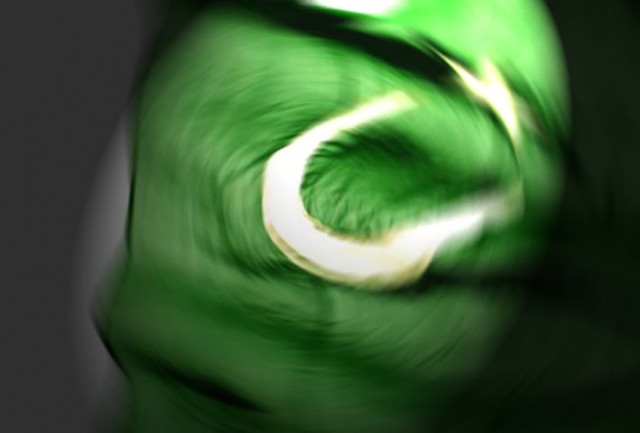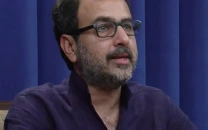A time to think
The question that we should be asking is how we should tap into Pakistan's immense potential.

Minar-e-Pakistan is itself rather yellowed and decayed, this alone should make us think about what has become of the dream that was Pakistan.
But today, the building of the Minar is itself rather yellowed and decayed. This alone should make us think about what has become of the dream that was Pakistan. Many hopes, many ambitions and many happy predictions surrounded its creation. It is a question as to how many of these have survived the passage of time and the more than six decades that have passed since the country appeared on the world map. There can be no doubt that when we look around, we can see that there is much to think about. Pakistan has been called a failed state; it has been declared the world’s most dangerous country; people fear to visit it and even those who live within its territory try in droves to escape one way or the other. Many end up dead aboard illegal human smuggling vessels or in jails in foreign lands. This itself says quite a lot about the nation that has been created or rather, what we have made of this nation we created with so many hopes, dreams, sacrifices and expectations. The reasons for the attempt to get away are obvious: high unemployment, lack of opportunity, poverty and the general sense of despair that comes with all of these.

To add to such factors, Pakistan has one of the lowest standings for human developments in the world. In South Asia, only Nepal and Afghanistan stand behind it. The education, the healthcare, the welfare it has been able to offer its citizens has been dismal. Too little consideration is given to this reality by our leaders even today. Yet, these are matters we need to think about, just as we do the economic crisis which breeds the energy shortfall that adds to our problems and the militancy that refuses to allow us to prosper.
This should make us think about what went wrong and why and think about how we can make the country a better place to live in. In light of this, March 23 needs to be marked, not as a holiday or a day for parades and national celebrations, but as a time for introspection. To understand our problems we must know why they have arisen and trace their origins. Only then will we be able to solve them. Sadly, through the years, we have done far too little of this, preferring like ostriches to bury our heads in the sand and pretend nothing is wrong at all. This can do us no good in the longer run. We need to face up to reality and attempt to make honest and sincere efforts to amend it. The day the Pakistan Resolution was passed is a good time to begin to do this.
At the same time, we should keep in mind that not everything is painted in black and grey. Indeed, with every dismal occurrence, there are positive rays of hope, reminding us that there is still good in this country, and still much to build on. We truly need to mark the tremendous resilience of the people who have persevered through all kinds of difficulties and continue to conduct their lives as best they can. There have been success stories as well. Around the world, Pakistanis have many achievements. They rank among the top students and professionals in the US and other countries. This is no mean achievement. At home, too, we have men like Abdul Sattar Edhi who deserves global recognition for his efforts to improve the lives of the most deprived and destitute of people. There are others like him. It is also true that Pakistan has immense potential. The question that we should be asking is how we should tap into it and why we have not succeeded in doing so, as yet.
Published in The Express Tribune, March 23rd, 2013.



















COMMENTS
Comments are moderated and generally will be posted if they are on-topic and not abusive.
For more information, please see our Comments FAQ